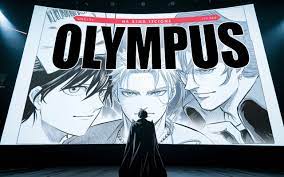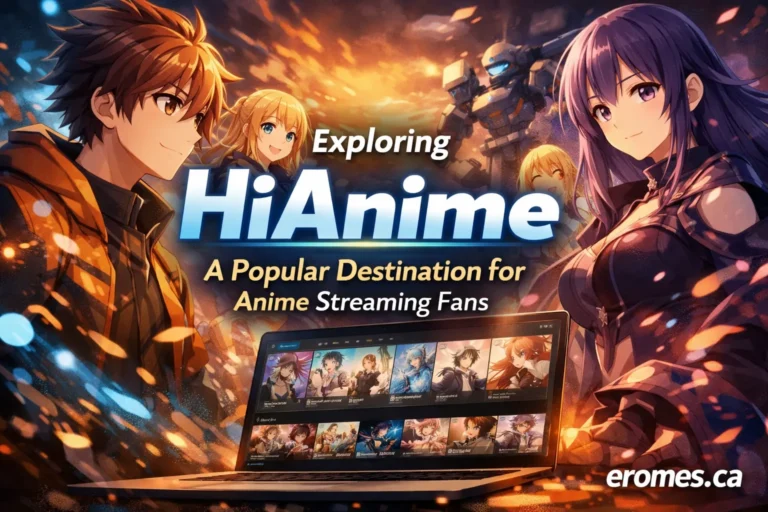
“Olympus: 7 Legendary Tales Igniting a New Era of Mythological Storytelling”
“Olympus: 7 Legendary Tales Igniting a New Era of Mythological Storytelling”
[ad_1]
In the vast landscape of modern literature and visual storytelling, manga has carved out a unique niche, blending art with narrative in ways that captivate audiences of all ages. One of the more compelling entries into this realm is Olympus, a series that brings mythological tales to life with a fresh perspective. This article delves deep into the world of Olympus, exploring its themes, character development, artwork, and impact on contemporary culture.
The Genesis of Olympus
Inspiration from Classical Mythology
Olympus is deeply rooted in classical mythology, borrowing themes and characters from ancient tales that have resonated through the ages. The series takes familiar stories from Greek mythology and reimagines them, giving readers a fresh look at iconic characters like Zeus, Athena, and Hades.
The Evolution of Mythological Narratives
Historically, mythological narratives have evolved to reflect societal values and challenges. This trend continues in Olympus, which contextualizes these age-old tales in a way that resonates with modern audiences. The series highlights timeless themes like love, power, betrayal, and redemption, making them relatable even in a contemporary setting.
Themes in Olympus
Exploration of Identity
One of the most profound themes in Olympus is the exploration of identity. Characters grapple with their roles within their families, society, and the larger framework of destiny. For instance, Persephone’s duality as both the goddess of spring and the queen of the underworld is a poignant representation of the conflict between light and darkness—a central struggle in many of our lives today.
The Duality of Power
Olympus also examines the duality of power. The gods are not merely omnipotent beings; they are often portrayed as flawed characters dealing with jealousy, pride, and emotional turmoil. This multifaceted approach humanizes the gods, allowing readers to connect with them on a deeper level.
Love and Sacrifice
Love is an omnipresent theme in Olympus, explored in numerous ways—romantic love, familial bonds, and friendship. The sacrifices made by characters for the ones they love serve to illustrate the magnitude of these relationships.
Characters of Olympus
The Protagonists
Olympus features a variety of compelling protagonists, each with unique motivations and arcs.
Zeus: The Fallible King
Portrayed as a powerful yet deeply flawed ruler, Zeus embodies the struggles of leadership and the burdens that come along with absolute power. His character evolves from a tyrant to a more nuanced figure who acknowledges his mistakes.
Athena: The Wise Strategist
Athena serves as a guiding light in times of chaos. Her intelligence, paired with her vulnerability, makes her a relatable character who carries the weight of expectations from both gods and mortals alike.
Hades: The Misunderstood Anti-Hero
Often overlooked in mythological narratives, Hades emerges as a complex character in Olympus. His backstory and motivations provide insights into his relationships with his siblings and his role as the ruler of the underworld.
Supporting Characters
The supporting cast in Olympus is equally engaging, offering various perspectives that enrich the main storyline. Characters such as Demeter and Hermes add depth and complexity, revealing different facets of the overarching themes portrayed in the series.
Artistry in Olympus
Unique Artistic Style
The artwork in Olympus stands out for its intricate detail and dynamic expressions. Each panel is carefully crafted, bringing characters and their emotions to life. The use of color and shading enhances the storytelling, drawing readers into this vividly imagined world.
Symbolism through Visuals
Art in Olympus is not merely decorative; it serves to enhance the narrative. Various symbols associated with different gods and themes pop up frequently, adding layers of meaning to the story. For instance, the use of the olive tree as a recurring motif symbolizes wisdom and peace, particularly associated with Athena.
Cultural Impact
Reimagining Mythology for the Modern Age
Olympus has revitalized interest in classical myths, making them accessible for a younger demographic that may not have been exposed to these stories before. This reimagining serves to foster a deeper understanding of mythology and its relevance in today’s world.
Cross-Genre Appeal
The series transcends the boundaries of traditional manga by incorporating elements from other genres—fantasy, drama, and even romance. As a result, Olympus has garnered a diverse readership, appealing to fans from various backgrounds.
Merchandise and Adaptations
The success of Olympus has led to various merchandise adaptations, including figurines, clothing, and even animated shorts. Such expansions into different media outlets broaden the reach and impact of the story even further.
Reception and Criticism
Positive Reviews
Critics have lauded Olympus for its fresh take on mythology, intricate storyline, and captivating artwork. Many readers appreciate how the series has made the stories of ancient gods and goddesses feel relevant again.
Critique of Character Development
Some critiques center around character development, with certain readers feeling that a few secondary characters lack sufficient depth. While main characters are richly developed, there are suggestions that some supporting figures could benefit from additional backstory.
The Future of Olympus
Upcoming Story Arcs
Fans are eagerly anticipating new story arcs that delve deeper into the lives of their favorite characters, particularly those who have not yet had their moment in the spotlight. Speculations abound regarding potential future conflicts and alliances that could enrich the overall narrative.
Adaptations and Spin-offs
As the popularity of Olympus continues to grow, the potential for adaptations and spin-offs is vast. Whether in the form of animated series or potentially exploring new characters in the same universe, the possibilities are endless.
Conclusion
Olympus is more than just a story about gods and monsters; it is a rich tapestry of human experience, exploring themes that resonate across time and cultures. Through its captivating characters, artistic brilliance, and thoughtful thematic depth, the series is modernizing mythological storytelling for a new era. It invites readers to reflect on their own identities and relationships, reminding us that, at the end of the day, we all grapple with our own myths.
FAQs
Q: What makes Olympus different from other manga series?
A: Olympus stands out due to its deep roots in classical mythology, modernized storytelling, and rich character development that highlights the flaws and complexities of ancient gods.
Q: Is Olympus suitable for all ages?
A: While Olympus is accessible to a wide audience, it does explore mature themes such as love, betrayal, and power dynamics, which may not be suitable for very young readers.
Q: Will there be an animated adaptation of Olympus?
A: While there has been significant interest, no official announcements have been made regarding an animated adaptation. However, given its popularity, it remains a strong possibility.
Q: How can I start reading Olympus?
A: Olympus is available in most major bookstores and online platforms, making it easy for readers to access the latest volumes and updates.
Q: What themes should I pay attention to in Olympus?
A: Key themes include the exploration of identity, love and sacrifice, and the duality of power, which are intricately woven into the storylines and character arcs.
Q: Are there plans for spin-offs or sequels to Olympus?
A: Currently, there are no confirmed plans for sequels or spin-offs, but the growing fan interest and intricate universe certainly leave the door open for such possibilities in the future.
[ad_2]





